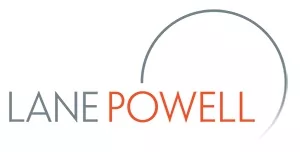Some five years after the passage of the Dodd-Frank Wall Street Reform and Consumer Protection Act ("the Act"), the Securities and Exchange Commission (SEC) continues to work through the rule-making process required by the Act. Today, as part of that effort, the SEC released proposed rules governing the claw-back by public companies of erroneously awarded compensation. If adopted, these rules will require each securities exchange or national securities association that lists securities to adopt listing standards in compliance with proposed Rule 10D-1 (the "Proposed Rule") of the Securities Exchange Act of 1934, as amended.
Under the Proposed Rule, each listed public company will be required to adopt and adhere to a written claw-back policy (a "Policy"). The Policy must provide that if the company is required to prepare an accounting restatement due to material noncompliance by the company with any financial reporting requirements under federal securities laws, the company will recover the amount of any "erroneously awarded incentive-based compensation."
To be subject to the Policy, the incentive-based compensation must meet certain criteria. First, it must have been received at a time when the company had a class of listed securities. Second, it must have been received by an individual who served as an executive officer of the company at any time during the performance period for the incentive-based compensation.
The Policy must apply to any incentive-based compensation received during the three completed fiscal years immediately preceding the date the company is required to prepare the restated financials. In addition, the Policy must apply to any transition period resulting from a change in the company's fiscal year within or immediately following the three-year period (although a transition period of nine months or more will be deemed a fiscal year).
For purposes of the Proposed Rule, "erroneously awarded compensation" is defined as the amount of incentive-based compensation that was received that is in excess of the amount of incentive-based compensation that otherwise would have been received, had it been determined based on the restated financials. Importantly, this amount is to be calculated without regard to any taxes paid on the amounts originally awarded.
Of particular note is the treatment of incentive awards for which it is impossible to calculate the amount of the "erroneously awarded compensation" directly from the restated financials, such as awards which are based on stock price or total shareholder return. In those circumstances, the Policy will require a company to recover an amount that is based on a reasonable estimate of the effect of the accounting restatement on the company's stock price. In this situation, the company must also maintain documentation of the determination of the amount recovered and provide that documentation to its listing exchange or securities association.
In the event that a company undertakes a financial restatement, it is required to recover erroneously awarded compensation unless it determines that recovery is impracticable. The Proposed Rule, however, makes clear that recovery will only be impracticable if either (i) the direct expense paid to a third party to assist in enforcing the Policy would exceed the amount to be recovered or (ii) recovery would violate the law of the company's home country. Further, a company may not determine impracticability based on expense without first making a reasonable attempt to recover the erroneously awarded compensation (and documenting those efforts), and may not determine impracticability based on violation of law without first obtaining and providing to the company's exchange or securities association an opinion of counsel in that jurisdiction stating that recovery is unlawful. And in either case, the company's compensation committee must make the determination that recovery is impracticable. As expected, the Proposed Rule provides that a company may not indemnify its current or former executive officers against the loss of erroneously awarded compensation.
It should be noted that the Proposed Rule also contains an amendment to Item 402 of Regulation S-K, the effect of which is to require a public company to disclose, in either its proxy statement or annual report on Form 10-K, the amount of any erroneously awarded incentive compensation. Those required disclosures include not only the reduction of amounts reported in the company's summary compensation table (and footnote disclosure of the amounts recovered) but also (i) the means by which the company determined the amount to be recovered, (ii) the amount of any compensation which the company determined recovery was impracticable (and the rationale for that determination), and (iii) the amount, if any, that the company determined was required to be recovered but which had not yet been recovered from the executive as of 180 days following the company's determination.
The content of this article is intended to provide a general guide to the subject matter. Specialist advice should be sought about your specific circumstances.

